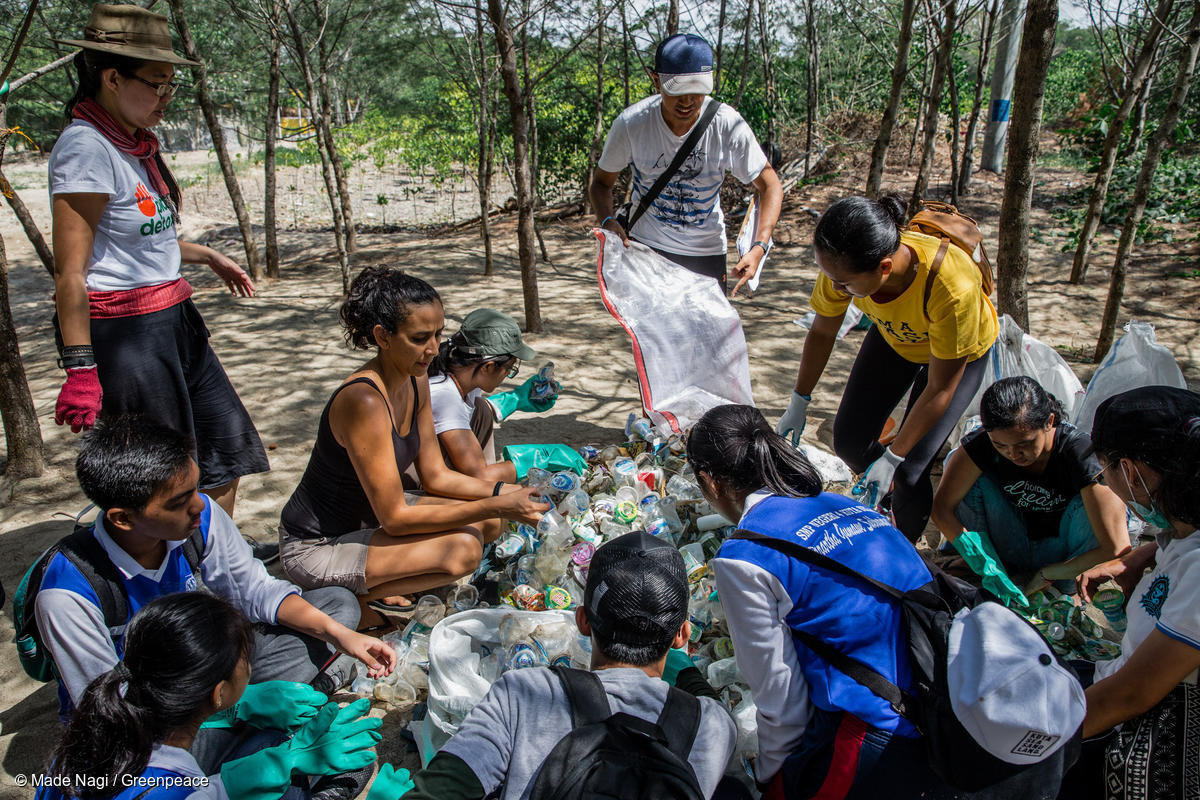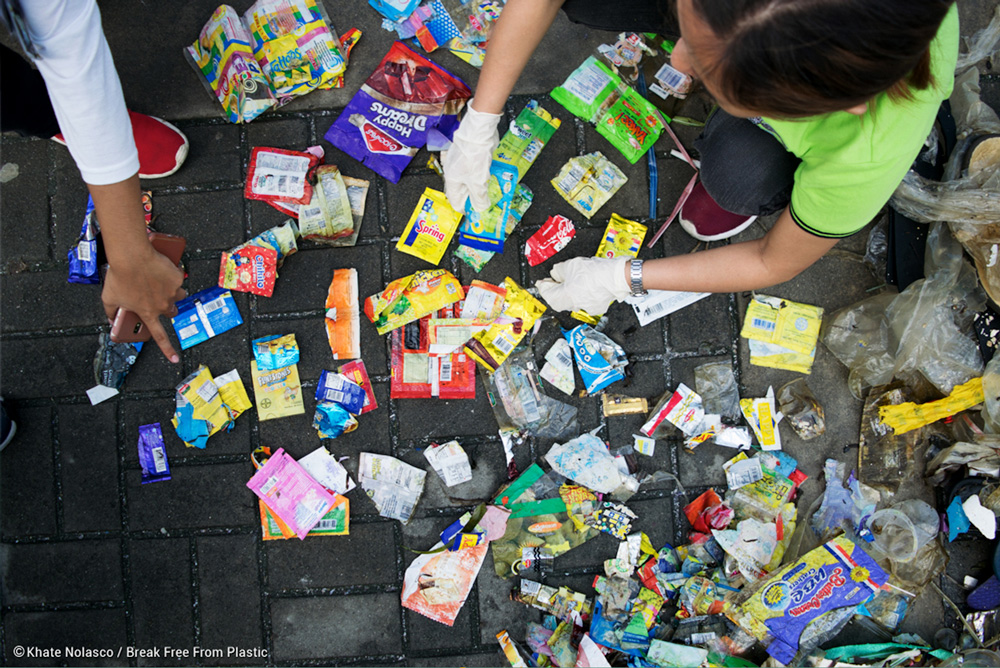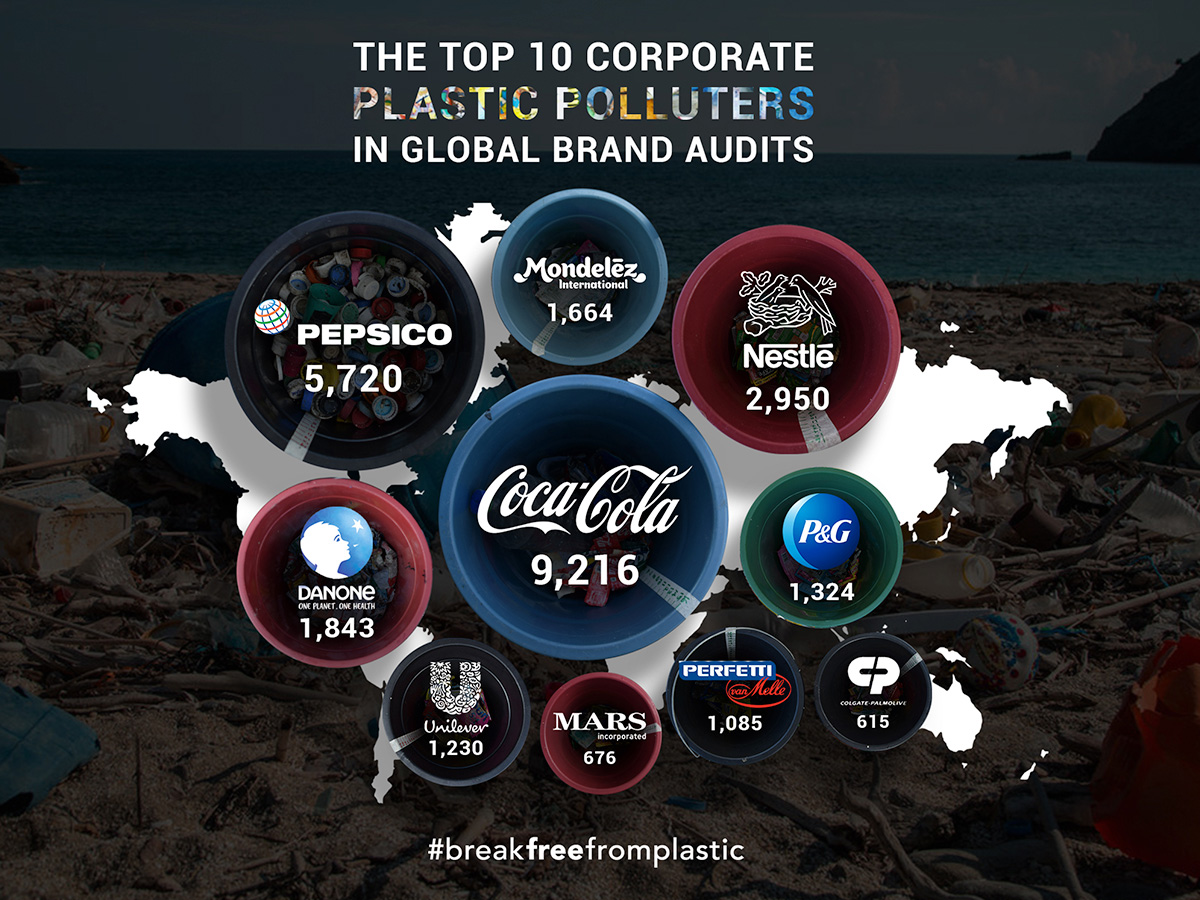Plastic is pollution the minute it is made! At first, such a provocative statement may seem too outrageous, given the various applications of plastic that we have been used to in our daily lives. The record, however, shows that of all the plastic ever produced and widely deployed in commerce by companies especially as packaging for their products, only 9% has actually been recycled, with the rest getting burned, disposed of in landfills or dumpsites, or otherwise ending up in nature or polluting our oceans. It is simply insane to be producing all this pollution that nature cannot absorb. Worse, a report from the Center for International Environmental Law (CIEL) published last year states that plastic production is slated to increase by nearly 40% over the next 10 years.
Should we therefore be surprised that our oceans are now brimming with plastic pollution? That we are finding evidence of plastic contamination everywhere—in our drinking water, in our sugar, in sea salt, in beer and honey, and in our bodies?

Greenpeace volunteers collect and audit plastic garbage during the International Coastal Cleanup Day in Mertasari beach, Sanur, Bali. Greenpeace Indonesia is holding the same activity in other two locations in Indonesia: Tangerang and Yogyakarta, as part of the #BreakFreeFromPlastic global movement to reduce single use plastic products usage.
Unless companies move away from their reliance on fossil-fuel based plastic for their products, we are looking at a climate-challenged future awashed in plastic pollution with untold repercussions on human health and life on the planet as we know it.
#breakfreefromplastic, our movement composed of more than 1300 organizations worldwide working to turn the tide on plastic pollution, has been calling on companies to drastically reduce, if not eliminate, the problematic and unnecessary plastic packaging that often comes with their products.
From August to September this year, various #breakfreefromplastic member organizations mobilized and organized cleanups and audits to identify the top companies whose products rely on single-use plastic packaging that pollute our oceans and waterways worldwide.

Teachers and students from Tinajeros National High School, Malabon conduct a Brand Audit in the International Coastal Cleanup Day, Manila Bay, Philippines. Photo by Khate Nolasco
This massive citizen action against big corporate plastic polluters have yielded the following numbers: 187,851 pieces of plastic trash collected in 239 cleanups and audits in 42 countries across 6 continents.
While our brand audits do not provide a complete or definitive picture of the plastic pollution footprints of companies, they provide an evidence-based snapshot or indication of the most visible plastic polluters that people are finding in the beaches, parks, and in their own localities.
The results of this latest set of brand audits are featured in our consolidated report Branded: In Search of the World’s Top Corporate Polluters vol. 1 and they reveal that among the world’s most prolific and polluting brands are multinational companies namely Coca-Cola, PepsiCo, Nestlé, Danone, Mondelez International, Procter & Gamble, Unilever, Perfetti van Melle, Mars Incorporated, and Colgate-Palmolive.
In fact, the top three companies alone (Coca-Cola, PepsiCo, and Nestlé) accounted for 14% of the branded plastic pollution found in the six regions where the audits were conducted.
These same companies whose products are often packaged in throwaway, non-recyclable plastic are the same companies that have been exposed in our earlier brand audits in Southeast Asia and India. Their marketing and packaging decisions have burdened communities and local governments with waste materials that can neither be composted or recycled. These companies are aware that most developing countries lack the resources and wherewithal to handle problematic types of plastic waste in their systems. Yet they continue to churn out the stuff along with their products, flooding markets in the global South, hoping that millennials will continue to be mesmerized by the promise of convenience that throw-away plastic represents.
Instead of investing in alternative delivery systems, product redesign, or materials that avoid the problems associated with plastics to begin with, the same companies continue to push for quick fixes or controversial methods of recycling (mostly downcycling) and/or waste recovery (aka incineration) to promote business as usual and justify the continuing production of plastics.
These are neither viable nor sustainable solutions, inasmuch as they only deepen our dependence on fossil fuels and reinforce the throw-away mentality. The real solutions lie in measures and policies that will reduce, if not eliminate, the use of problematic and throw-away plastic packaging for products. This is the real innovation challenge that companies urgently need to take on.
Our brand audits offer undeniable proof of the role that corporations play in perpetuating the global plastic pollution crisis. By continuing to churn out problematic plastic packaging for their products, these companies are guilty of trashing the planet on a massive scale. It’s time they own up to their major role in plastic pollution and stop shifting the blame to citizens and cities for their wasteful and polluting products.




